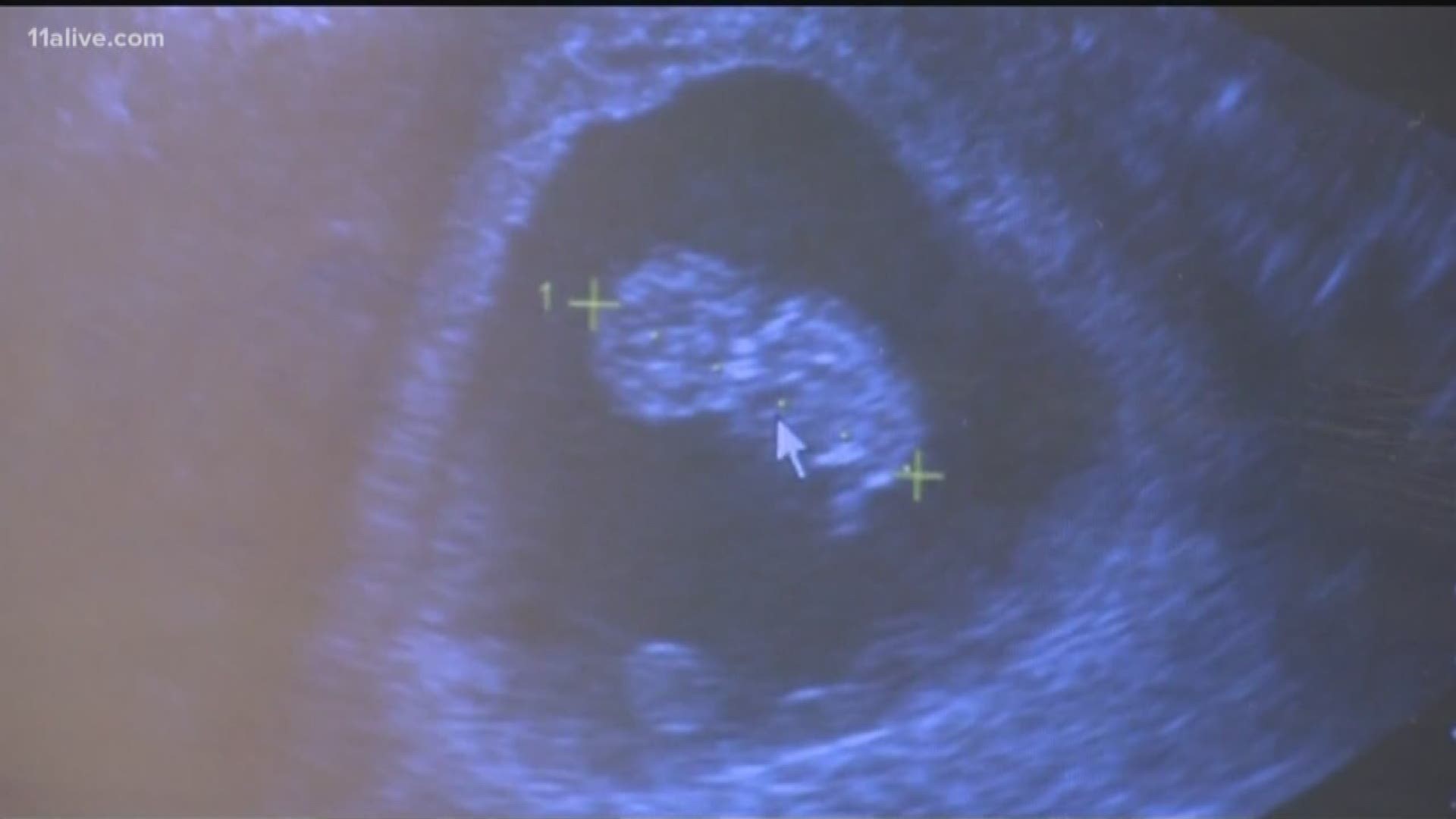ATLANTA — Georgia’s so-called heartbeat abortion bill was signed into law this week. It makes most abortions illegal after six weeks, or when a fetal heartbeat can be heard.
The law does make certain exceptions. In cases of rape or incest, a woman can have an abortion up to 20 weeks. Also, if a woman's life is in danger, the law will allow her to have an abortion.
The signing caps weeks of tension and protests at the state Capitol and begins what could be a lengthy and costly legal battle over the law's constitutionality.
MORE: See abortion bill
Questions are being raised from all corners regarding the legality of this bill: medical providers, patients, lawyers, legislators and residents.
Trying to get answers to some of these questions illustrated the complicated issues arising from the bill. Planned Parenthood has already said they will file a lawsuit to stop the bill.
“The full implications of this bill are not yet known, nor will they be, unless and until they are played out in court,” said Barbara Ann Luttrell with Planned Parenthood Southeast. “Even legal experts can’t predict what a district attorney might do if this bill were to take effect.”
“HB 481 (the abortion law) is not set to take effect until January 2020 and litigation will begin before that date, so it may never take effect at all,” Luttrell, who emphasized there are already a dozen similar legal challenges in the court system, added. “In the meantime, the important thing to remember is that abortion is still safe, legal, and available in Georgia.”
Georgia Governor Brian Kemp has said he will fight any suits challenging the law. Ultimately, the legality of legislation like Georgia’s will be decided by a court of law and, possibly, even the Supreme Court of the United States.
11Alive spoke to legal expert Deborah Dinner with Emory University School of Law, and presented her with questions brought to us by readers and viewers. The answers are posted verbatim with no editing.
1) The bill says "in cases of rape" abortion is OK. Does the woman have to take a police report with her to the doctor? Or can doctors take the women at their word? Can a doctor be held responsible under the law for performing an illegal abortion?
Law professor Deborah Dinner: The bill is unconstitutional and is unlikely to be upheld by any court. Were the bill to go into effect, however, it does seem to require the doctor’s knowledge that a police report exists. The bill requires that a woman filed a police report for rape or incest to qualify as an exception. One part of the bill says that “no abortion ... shall be performed” if a “detectable human heartbeat” exists and provides for some exceptions including when “the pregnancy is the result of rape or incest in which an official police report has been filed ... ”
Another part of the bill requires physicians to report to the state that he or she performed an abortion when the pregnancy was the result of rape or incest. This seems to suggest that the doctor would have to have knowledge that the pregnancy was the result of rape. Given that the rape exception requires a police report, it seems that the doctor might be held criminally liable for performing an illegal abortion in the absence of such a report. The doctor might not need to have a copy of such a report in hand. But, the requirement that woman file the report puts the doctor in a tough position. If he or she did not have a copy of the report him or herself, then it would be difficult to have certain knowledge that one was filed.
2) What if police didn’t write a report?
Dinner: The bill’s requirement that a police report be filed in the case of rape is just one of the many reasons why this legislation undermines women’s physical security, health, and bodily integrity.
3) If a woman goes out of state to get an abortion but comes back, can she be held liable under the law and charged?
Dinner: No, a woman will not be held liable under the bill if she has an abortion out of state.
4) If a woman miscarries, could she be prosecuted?
Dinner: Yes, the legislation could produce criminal investigations of women who miscarry. The bill states that “removing” a fetus that is no longer alive due to a “naturally occurring” miscarriage or stillbirth will not be considered an abortion. If a woman naturally miscarries, therefore, she will not be liable under the Act.
But because the bill criminalizes abortions after the heartbeat is detectable - as early as six weeks - then a woman who miscarried could be prosecuted and would have to prove that she had a naturally occurring miscarriage. If she miscarried because she ingested a drug such as Misoprostol with the intention of producing an abortion, or if she ingested another drug (legal or illegal) knowing that it would “with reasonable likelihood” result in an abortion, then she would be criminally liable.
The threat of prosecution of women who naturally miscarry demonstrates the horrifying extent to which this bill involves the state in the intimate details of women’s reproductive lives. The bill will also likely lead to the disproportionate criminalization of poor women and women of color.
*Editor’s note, the bill states an intentional miscarry is prosecutable but viewers/readers questions were about an accidental miscarry
5) Other legal insight into the bill?
Dinner: The Georgia legislation is flagrantly unconstitutional, violates women’s fundamental rights to reproductive liberty and privacy, and represents a major threat to the ongoing struggle for gender equality.
In a 1992 decision, Planned Parenthood of Southeastern Pennsylvania v. Casey, the Supreme Court affirmed the central holding of Roe v. Wade that women have the right to abortion prior to viability. The Court ruled that the state cannot ban abortion during this period. The Georgia “Heartbeat Bill” violates the Constitution by banning abortions as early as six weeks, long before any fetus could be viable. The bill not only violates women’s constitutional rights to choose abortion. It also potentially deters doctors from providing essential healthcare to pregnant women.
RELATED
- Women's advocacy groups, civil leaders voice opposition to the passage of Georgia's 'heartbeat bill'
- Netflix subscribers ask company to boycott Georgia over proposed 'heartbeat' abortion bill
- States vying for Georgia film dollars as Hollywood threatens to leave over 'heartbeat' abortion bill
- Alyssa Milano denounces 'heartbeat' abortion bill at State Capitol
- The 'heartbeat bill': These are the winners and the losers in the abortion fight


